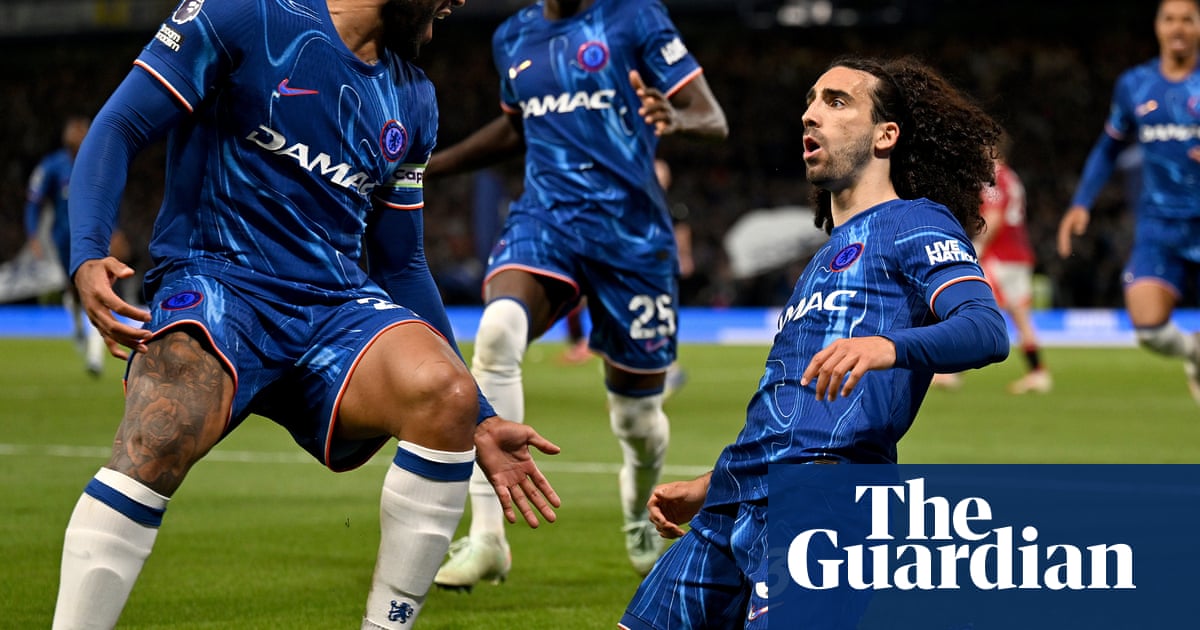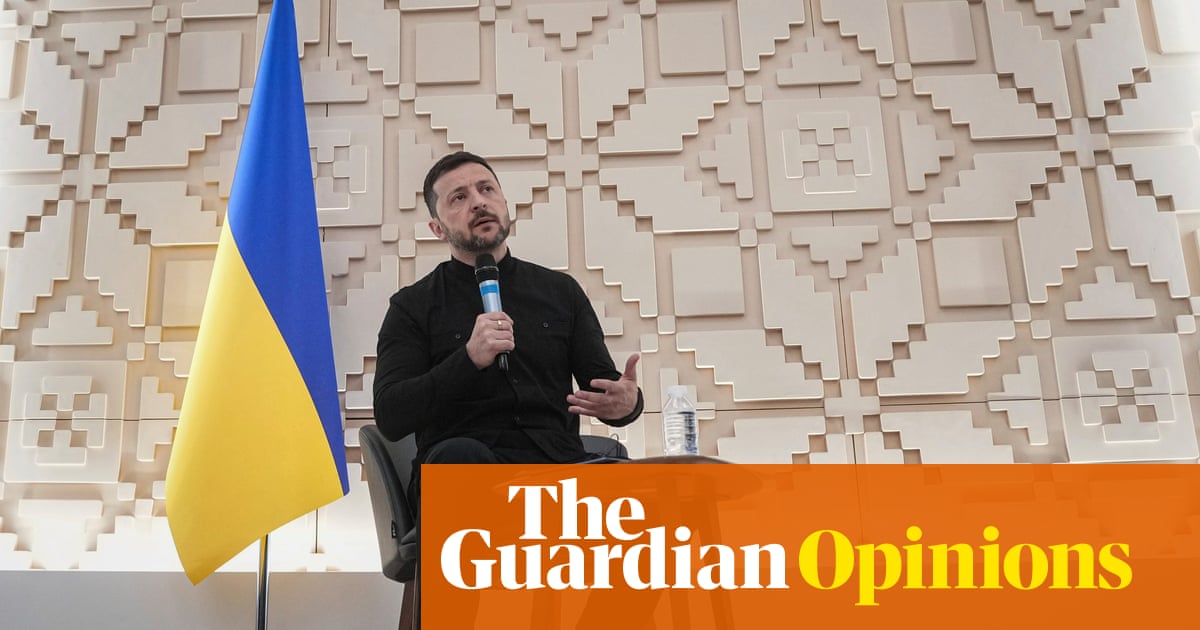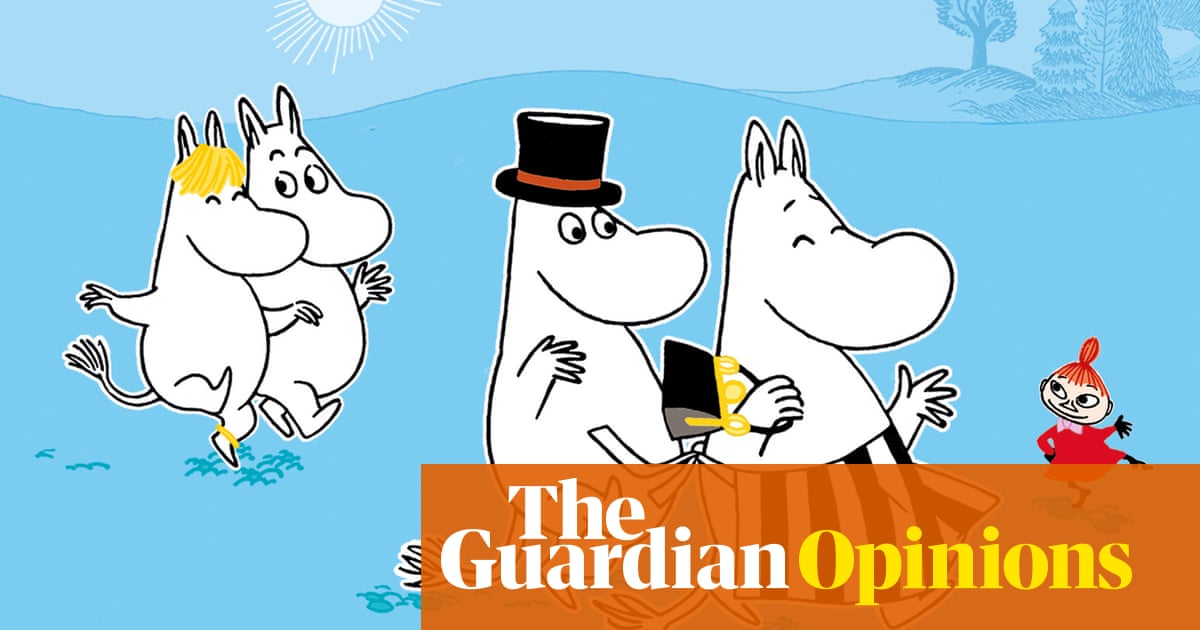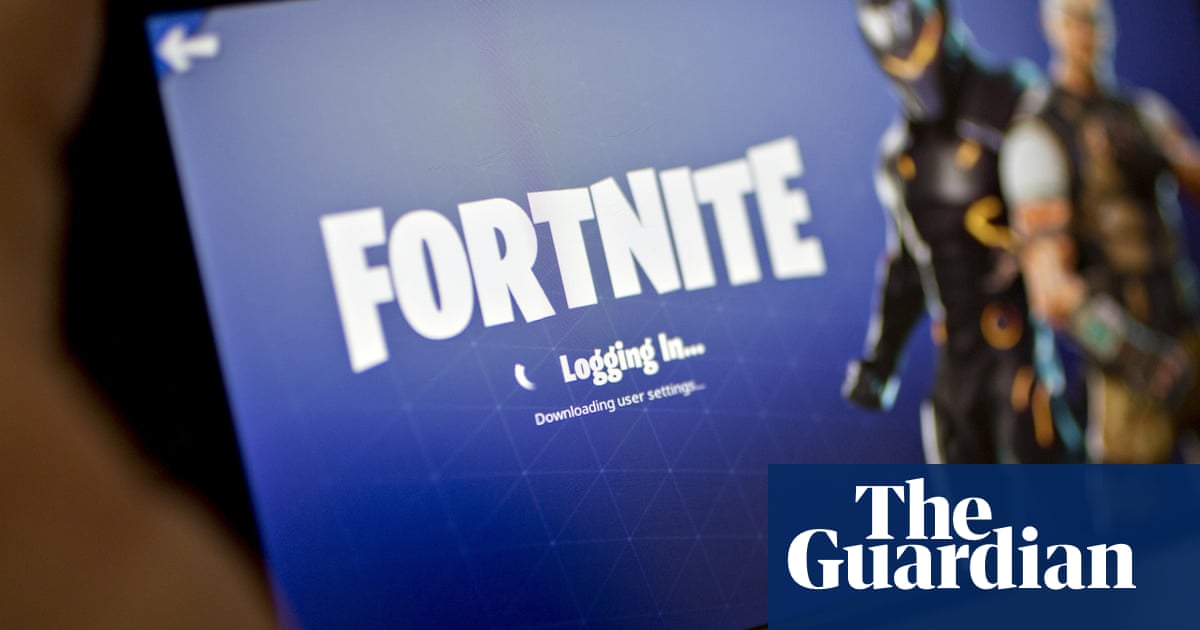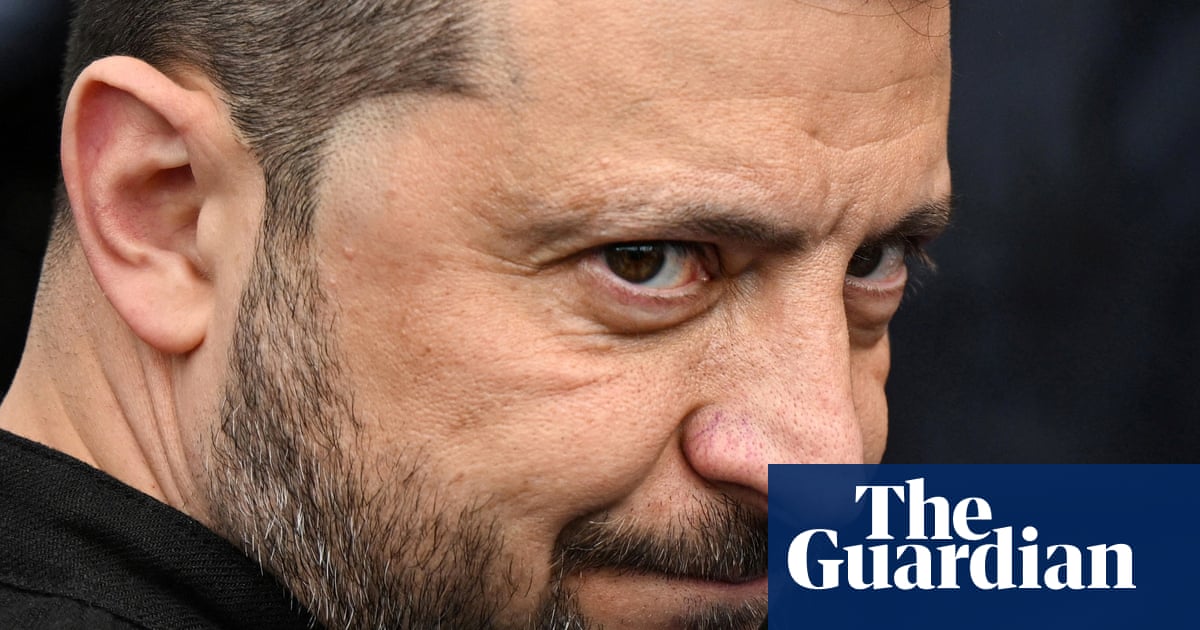Chat over. Will Hughes strolls across the car park to get some photographs taken. As it happens, the man emerging from the gym at that very moment is the Crystal Palace midfield-partner whose praises Hughes has just been lavishly exalting.
“Just added about £20m to your fee in that interview,” Hughes shouts at Adam Wharton as they pass. “You can have half,” Wharton retorts. All delivered with a knowing smile, for this is the Palace of Oliver Glasner, where – as Hughes puts it – “there’s egos, but good egos”. No arrogance, none of the blame culture he sees elsewhere. “You watch other teams and hands are in the air, there’s moaning,” he says. “But I honestly don’t see any of that here.”
It’s the week of the FA Cup final and there’s a frisson in the air. But Hughes is happy to talk about anything and everything: the good, the bad, the ridiculous. What the first trophy of his career would mean. How a wispy teenage No 10 turned into one of the Premier League’s toughest, most reliable midfielders. Why VAR is “shit”. Whether he was ever as good as everyone said he was. Why he doesn’t really watch football.
The last point, dropped in casually near the end of the interview, is perhaps most startling of all. Were Hughes not playing in the FA Cup final, it’s not entirely certain he would be watching it. “I don’t watch any football,” he says. “I used to when I was younger. Now I like to switch off away from the game. I like EastEnders.”
But then this has always been a player built slightly different. The private-school kid forged in a tough Derby County dressing room, the elegant passer who adores a crunching tackle, the guy groomed as the next star of English football, but who doesn’t even do social media.
There is a YouTube video from 2012 entitled “Will Hughes – The Next Great English Midfielder.” Hughes was 17. By this point he had already made his Derby debut, played for England Under-21s and was being compared to Xavi, Andrés Iniesta and Jack Wilshere. Glasner alluded to this recently when he said: “I was told that when Will was 19 he was one of the best passers in English football. I don’t know what happened between.”
So what happened between? Was he actually as good as that? How much of the hype was just hype? “I don’t want to put myself down,” he says, “but I never did anything to warrant that. People say I’ve not achieved what I should have. If I’d scored 10-15 goals for three consecutive seasons, then I could hold my hands up. But there was nothing that warranted that sort of hype.
“I’m very self-critical. One of my strong points is I know what I’m good at and what I’m not good at. [Eberechi] Eze and [Michael] Olise, they can do things with a ball that I could never do in a million years. But I was trustworthy on the pitch. That’s the most important thing for a manager.”
At which point it feels like an appropriate moment to talk about Wharton: another left-footed midfield boy-king tipped for greatness. “On the ball, frightening,” Hughes says. “Levels above what I am. Some of the things he does – how he’s seen that? There’s no stats for some of the stuff he does: breaking up play, passing through the lines. The most important thing is he’s humble. As long as he keeps that, he can go to the very top.”
In a way Hughes was lucky. At Derby he was steeped in a culture of humility and hard work, surrounded by senior players who would give him a rattle if he ever started to believe his own hype. “Unfortunately, for a lot of young players now, that’s not the case,” he says. “A lot of people will tell them what they want to hear.
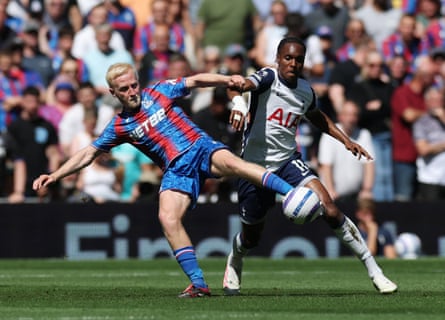
“I don’t like the limelight. But the game moves on, generationally. Younger players are on social media, which is absolutely fine, but you’ve got to remember the priority is football. There’s those who get caught in that blurred line, and want to be a celebrity first. Which I think is sad. I don’t want to sit here and be miserable about it. But the game I fell in love with when I was a young kid is completely different.”
An old-school character, then, on and off the pitch. At Watford and then at Palace, Hughes gradually adapted his game, moved further back, started getting his hands dirty. “I’ve always had that grit,” he insists. “It’s gone out of the game a bit now, it feels like every tackle now is a potential booking. But that’s on players as well, making a meal out of every single foul.” Eleven bookings this season suggests as much, although as Hughes adds with a smile: “Some of those were necessary.”
Talk of discipline brings us on to the over-officiating of the game, the way VAR slows every tackle down in microscopic detail. “I hate it, I absolutely hate it,” he says. “I just think it’s ridiculous when an official has to look at it 10 times. There’s obviously a line of endangering the opponent, but I think 90% of them [red-card tackles] are subjective. Referees talk about ‘progressivity of tackles’, which I just can’t get my head around. It’s an aggressive game.”
What if footballers felt empowered to challenge the status quo? To organise, to mobilise, to declare with one voice that VAR is … “Shit?” Hughes replies. “But there’s many players that think it’s a good thing. That it protects them. Obviously there’s a line. But I think generally fans want to see that intensity, the back and forth of the game.”
Which, coincidentally, is a pretty good way of describing Glasner’s Palace: an aggressive 3-4-3 that will fight you all over the pitch, that can cut you open with speed, transition and width. “I’ve learned things under this manager that I’ve never seen in my career,” Hughes says. “The level of detail, on and off the ball, is so clear. If I was to play left wing-back I wouldn’t be good, but I’d know the role.”
By way of example Hughes thinks back to the equaliser Nottingham Forest scored at Selhurst Park a couple of weeks ago, a scruffy deflected shot from 20 yards. “I should have been two or three yards closer to the edge of the box, which would have stopped the goal,” he laments. “It’s not obvious on TV that it’s my fault. But everyone in the team and on the management staff would know. These are the details many people don’t realise.”
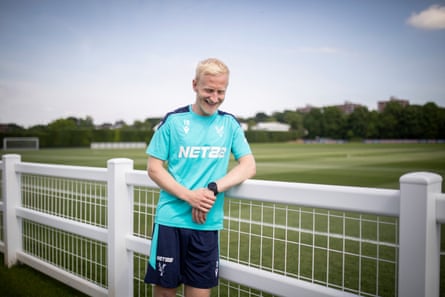
Hughes is now 30, a player of 181 appearances in the Premier League and none for England. While Wharton and Eze and Marc Guéhi and Dean Henderson jet off for international breaks, he looks forward to a little family time. “Again, without putting myself down,” he says, “there are a lot better players than me in that England squad. You wish you could. But there’s not one part of me that thinks I should.”
Go back through the England Under-21 teams that Hughes was part of a decade ago and while some of the players involved shot to fame – Harry Kane, Jack Grealish, John Stones – others sank without trace. So how does Hughes measure his career? Did he fulfil the talent he actually had, rather than the talent everyone assumed he did? “It’s a good question,” he says after a pause for thought. “Yeah, I think I have. People don’t realise that in football, longevity is a massive thing. You see so many players that do well for a year or two.”
What would really seal the deal is a trophy at Wembley. Hughes has had a bite of this cherry before: in 2019 his Watford team reached the FA Cup final against Manchester City, only to get blown away 6-0. “Some teams you play against just suit you,” he says. “For us, the last couple of years, I think it’s been [Aston] Villa. Watford and City just wasn’t a good combination. And their squad was just frightening. So a mixed day. Pride to get to the final, but losing by that amount, there’s a tint of embarrassment.”
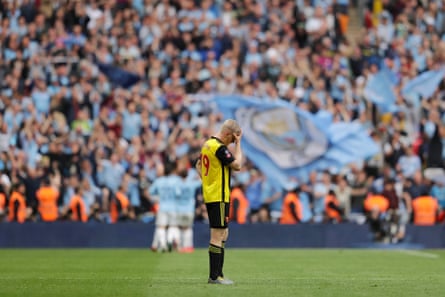
Hughes has no idea whether he’s starting on Saturday. Either way, he’s ready. An old-school player who has always measured his career by enjoyment rather than engagement, by metres run rather than milestones ticked off, now has a chance to achieve something tangible. Something that will last for ever. Or as he puts it: “Getting to the final is one thing. Winning … it’s a completely different ball game.”

.png) 7 hours ago
3
7 hours ago
3





